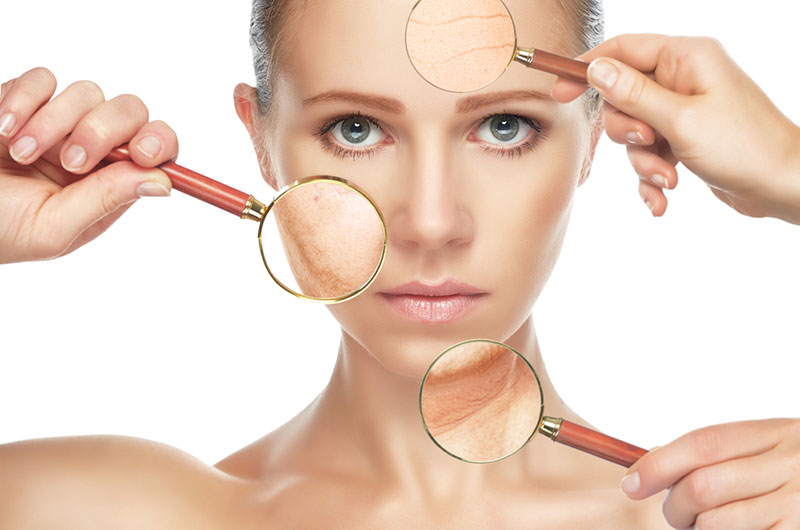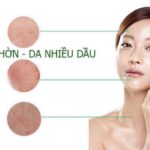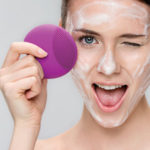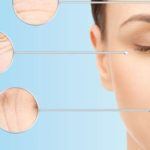The reason for sagging skin.
– Intrinsic aging occurs in everyone and refers to the gradual decline of collagen and elasticity that keeps our skin firm. This leads to sagging skin, eyelid skin, neck skin, and jawbone.
– Sun exposure is the biggest culprit of aging skin.
Over time, the sun’s ultraviolet rays damage certain fibers on the skin called Elastin. The breakdown of Elastin fibers causes the skin to sag, stretch, and lose the ability to bounce back after being stretched.

Tips to prevent sagging neck
Use daily sunscreen
Limiting sun exposure helps maintain healthy skin, reducing the risk of sunspots. Taking care of it includes using daily sunscreen. Physical, mineral sunscreens (not chemical) are essential for protecting your skin and should be applied daily, not just when you go to the beach.
Limit alcohol consumption
Limiting alcohol consumption can prevent premature skin aging. Some of the symptoms described above (e.g., sagging skin) as well as many other negative effects on health, such as high blood pressure, heart disease, stroke, liver disease,…
Morning and evening skincare routine
Cleansing and facial wash, using moisturizers, sunscreen, and Vitamin C serum are important steps in the morning for healthy skin. For specific advice on your condition and sagging skin symptoms, it is best to consult a doctor directly.
Makeup removal, cleansing, and using moisturizers and hyaluronic acid are common elements in your evening skincare routine. Retinol is another supplement in basic skincare habits.

Quit smoking immediately
Smoking can damage your skin and lead to premature aging of tissues, appearing as wrinkles, dry and rough skin, sagging skin, and other symptoms.
If you are a smoker, quitting immediately can prevent damage to your skin as well as many other negative health effects from smoking, such as the risk of stroke, coronary heart disease, and cancer.
Pay attention to other causes and see if you can make changes and adjustments in your lifestyle to stop contributing to the aging process.
7 Tips to Minimize Pores and Reduce Oily Skin During the Summer
Large pores can be a major source of self-consciousness, causing us to feel our complexion has lost points. Struggling with this issue can feel hopeless, so what can be done to get rid of them or, at the very least, reduce their appearance? Read on for more information and advice on dealing with large pores.
4 Tips to Prevent Sagging Skin with Facial Cleanser Use
Are you considering using a facial cleansing device to maintain a healthy skin regimen? Before taking the plunge, it is important to understand the potential risks associated with their use, such as the possibility of skin sagging. To help you make the most out of your facial cleansing device, we’ve put together 4 tips that will help you maintain the integrity of your skin’s health.



































